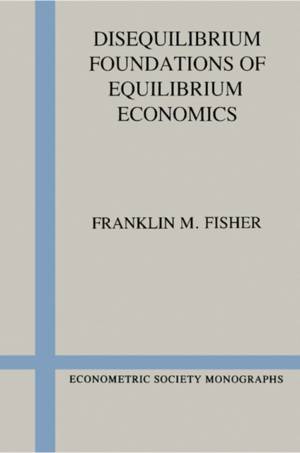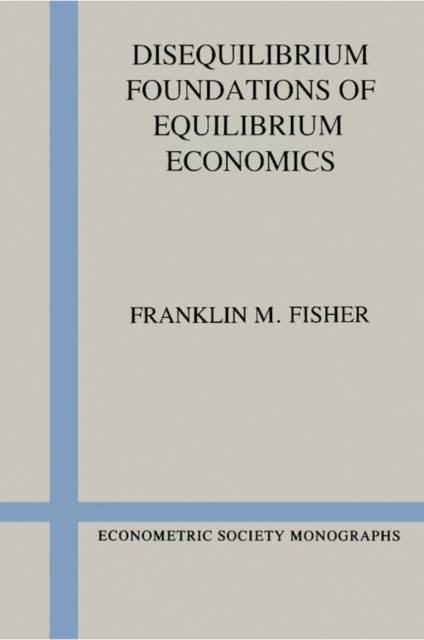
- Afhalen na 1 uur in een winkel met voorraad
- Gratis thuislevering in België vanaf € 30
- Ruim aanbod met 7 miljoen producten
- Afhalen na 1 uur in een winkel met voorraad
- Gratis thuislevering in België vanaf € 30
- Ruim aanbod met 7 miljoen producten
Zoeken
Omschrijving
The most common mode of analysis in economic theory is to assume equilibrium. Yet, without a proper theory of how economies behave in disequilibrium, there is no foundation for such a practice. The first step in such a foundation is a theory of stability, and this book is primarily concerned with that subject. The author first reviews the older literature on the stability of general equilibrium and goes on to consider a more satisfactory general model in which agents realize that they are in disequilibrium and act on arbitrage opportunities. Topics explored along the way include optimal arbitrage behavior, the relation of perceived monopoly power to quantity constraints, and the role of money.
Specificaties
Betrokkenen
- Auteur(s):
- Uitgeverij:
Inhoud
- Aantal bladzijden:
- 252
- Taal:
- Engels
- Reeks:
- Reeksnummer:
- nr. 6
Eigenschappen
- Productcode (EAN):
- 9780521378567
- Verschijningsdatum:
- 31/03/1989
- Uitvoering:
- Paperback
- Formaat:
- Trade paperback (VS)
- Afmetingen:
- 152 mm x 229 mm
- Gewicht:
- 371 g

Alleen bij Standaard Boekhandel
+ 193 punten op je klantenkaart van Standaard Boekhandel
Beoordelingen
We publiceren alleen reviews die voldoen aan de voorwaarden voor reviews. Bekijk onze voorwaarden voor reviews.











